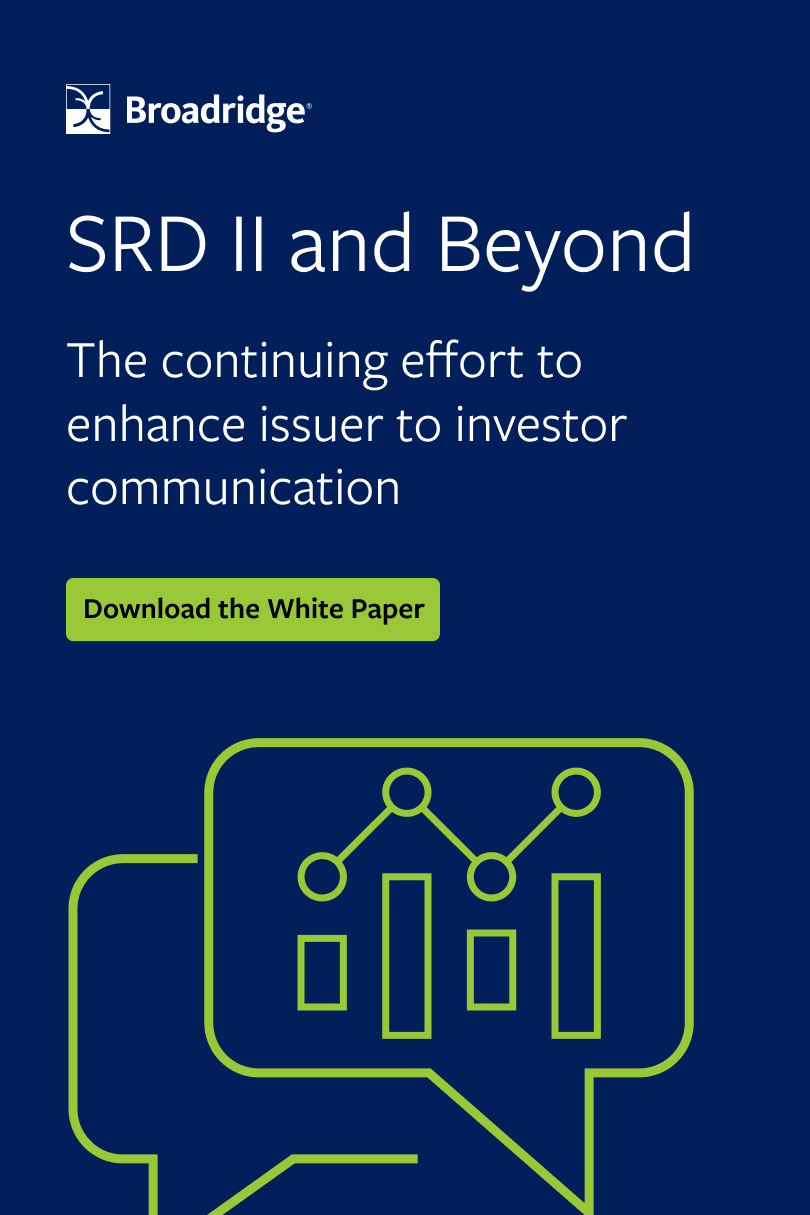As we welcome financial services leaders from around the world to Toronto for Sibos 2017, brand Canada continues to shine brightly. While Canadians are generally inclined to leave the largest portion of chest-thumping to our renowned hockey players, it’s safe to say that our bankers, pension plans and other financial markets players continue to gain prominence as global leaders. Canada is a tremendous place to do business, and for that we make no apologies.
Canada offers fruitful ground for those looking to start, build or invest in businesses. To list off the obligatory statistics: according to the Organisation for Economic Co-operation and Development (OECD), Canada led the G7 in real GDP growth from 2007 through 2016, and retains the highest real GDP growth projection for 2017-18.
The Economist Intelligence Unit forecast ranks Canada as the best business environment among the G7 for 2017 to 2021, and according to KPMG’s assessment, Canada has the greatest cost advantage among the G7 versus the US (14.6 percent). Canada’s business world is fueled by a diverse, highly-skilled population with a world-leading level of education: among OECD countries, Canada leads the pack with more than 55 percent of residents aged 25 to 64 holding a college or university degree.
As has been the case for nearly a decade, market participants continue to take confidence from Canada’s stable financial sector, robust market infrastructure, efficient settlement mechanisms, effective prudential regulatory environment and, of course, Canada’s status as one of the few remaining triple-A rated sovereigns.
Our five large banks continue to perform strongly among global rankings for safety and stability, and are global leaders in risk management. This has not held them back from embracing emerging trends and technologies. For example, CIBC Mellon’s Canadian parent company CIBC recently joined BNY Mellon and other major banks in the UBS-led ‘Utility Settlement Coin’ initiative that seeks to leverage blockchain technology to facilitate risk mitigation and enhance efficiency through trade clearance and settlement.
In terms of unapologetic global leadership, Canada’s large pension plans are taking on an increasingly prominent role in the global investment community. Canadian plans are leveraging their large capital pools and long investment horizons to drive an array of innovative investment activities. Plans are expanding globally and domestically across an array of asset classes, and opening up investment offices around the world to connect with new opportunities.
The dexterity and innovation of these plans can in a large part be linked to a ‘Canadian model’ for pension plan management, characterised by the retention of substantial investment expertise in-house and an independent governance structure to help insulate plans from political influence as well as shorter-term results pressures. For global investment and transaction players, the scale, sophistication and appetite of Canadian pension plans has the potential to offer a range of opportunities.
Under pressure: navigating insourcing versus outsourcing
Market participants are under enormous pressure to achieve operating efficiency, build the access and tools to support rapid evidence-based decision-making, and to maintain the necessary oversight over both in-house and outsourced functions. While firms are looking to achieve data flexibility, they are also grappling with legacy in-house processes, systems and infrastructure.
Many are looking to outsource in order to minimise long-term investment in their data platforms. As firms consider insourcing versus outsourcing they will need to consider both internal and regulatory governance requirements, as well as available internal expertise.
As has become the norm, we expect risk management to remain at the forefront, demanding effective governance, demonstrable oversight, and clear evidence of prudent decision-making.
The common reporting standard
The Government of Canada began implementing the common reporting standard (CRS) on 1 July 2017 with the first inter-jurisdictional exchange of information with other tax jurisdictions planned to take place in 2018.
Canada’s Department of Finance notes that, as of 1 July 2017, Canadian financial institutions have been required to implement new account opening procedures to identify accounts held by non-residents, and will be required to report certain information to the Canada Revenue Agency (CRA).
As a Canadian financial institution, CIBC Mellon will be required to take action to implement the provisions of the CRS that are applicable to it, as set out by the CRA. CIBC Mellon will be complying with applicable CRS standards and relevant regulatory requirements.
A new era of data
Even as providers continue to connect domestic and global players, the asset servicing industry is at an inflection point in terms of advancements in technology and data. Asset servicing providers are transforming themselves from securities processors and safe-keepers of assets into data enablers.
Providers must continue to deliver dependable execution and confidence, while also working to empower clients with flexible access to data. Historically, clients have looked to their providers to create tailored reports, but the focus is now shifting to empowering clients to pull data when they want, in the format they want, and to integrate data across internal and external functions.
Responding to evolving technology change
Institutional investors expect their asset servicing providers to leverage new technology to drive continuous improvement. However, new solutions must be thoughtfully and securely deployed. Even amid a technology environment that enables rapid change, providers must at all times provide necessary assurances, trust and confidence.
In Canada, as in other markets, significant focus has been directed to the area of vendor management and oversight. Firms of all types are emphasising core capabilities and outsourcing an array of technology and operational processes.
This has the potential to create multiple levels of vendor outsourcing and interconnectivity, increasing complexity even as outsourcers gain scale and efficiency. Outsourcing providers like asset servicers must work collaboratively with their clients to deliver the necessary tools and reporting to support oversight and governance. In keeping with this, Canadian regulators are highlighting the area of outsourcing in recent years. Market participants domestic and global will be well-served by selecting an asset servicing provider or sub-custodian with the local perspective to navigate the requirements and deliver the tools to support efficient, effective oversight.
In addition to complexity and governance needs, technology also brings the ever-evolving risk of cyber threats. Market participants need to make the necessary investments in people, systems and processes to appropriately monitor the IT environment internally and externally for potential risks and appropriate yet rapid response. As demands increase for information to be available yet well-secured, the focus on cyber-risk will no doubt continue to gain importance. Look for your asset servicing provider or local sub-custodian to provide the necessary information to support governance and oversight, while balancing the necessary confidentiality regarding the specific steps taken.
Engaging employees around innovation
Of all the investments necessary to support clients in navigating data, technology and market complexity challenges, one of the most important investments is into people. Clients are looking for their suppliers’ service teams to provide specialised insights, deliver consultative service, and proactively surface opportunities to help clients achieve their goals. Firms must take steps to build and reinforce an employee culture that is engaged, insightful and thoughtful around putting clients at the centre.
For example, as part of our efforts to drive an innovation culture, CIBC Mellon launched a Business Innovation Hub in collaboration with Ryerson University in Toronto. During a four-month term, five employees and five students brought their talents, experiences and enthusiasm to help create leading-edge solutions in a controlled manner, while thinking about our business in new ways. The group’s aim was to further enhance accuracy and operational efficiency, and leverage fresh ideas for doing business, to help unlock great potential and advance our client experience.
Robotics, a ‘good jobs’ strategy
Looking ahead, we can expect the march of technology change to continue, not only around mitigation of cyber risk, process improvement and supporting data availability, but also in areas such as data management, workflow design and artificial intelligence. For example, robotics in asset servicing focuses on automating data connectivity systems while enabling processing or logic as data and transactions flow. Robotics applications have powerful potential—not only in support of efficiency, but also in its impact on people.
While some may point to risks related to job displacement, we see robotics as a ‘good jobs’ strategy. Asset servicing providers have a long history of driving efficiency through automation and, in turn, moving employees up the value chain in delivering client service. The tasks most suitable for robotic applications tend to be repetitive, transactional activities, rather than more engaging, higher-value tasks that require strong human judgement. For CIBC Mellon and others, this dovetails well with a people strategy focused on engaging talented employees to deliver greater value for clients.
With the right investments in technology, training and culture, robotics and other automations have the potential to drive a better experience for clients and employees alike.
Confidence, stability and strength
In Canada we enjoy advantages that position us well such as a prudential regulatory environment built around ongoing dialogue, and robust and mature financial markets.
CIBC Mellon is at the forefront of the shift to data transparency, transforming itself from an asset serving provider to a data manager, helping to support clients’ data and governance needs in Canada.
Most importantly, we continue to invest in an employee culture focused on innovation, collaboration and client-forward service. Our team is working hard to embrace and integrate emerging technologies as appropriate for our business, and we are very much looking forward to the future as ongoing investments into technology and people help make the difference for our clients. The future is bright indeed.



